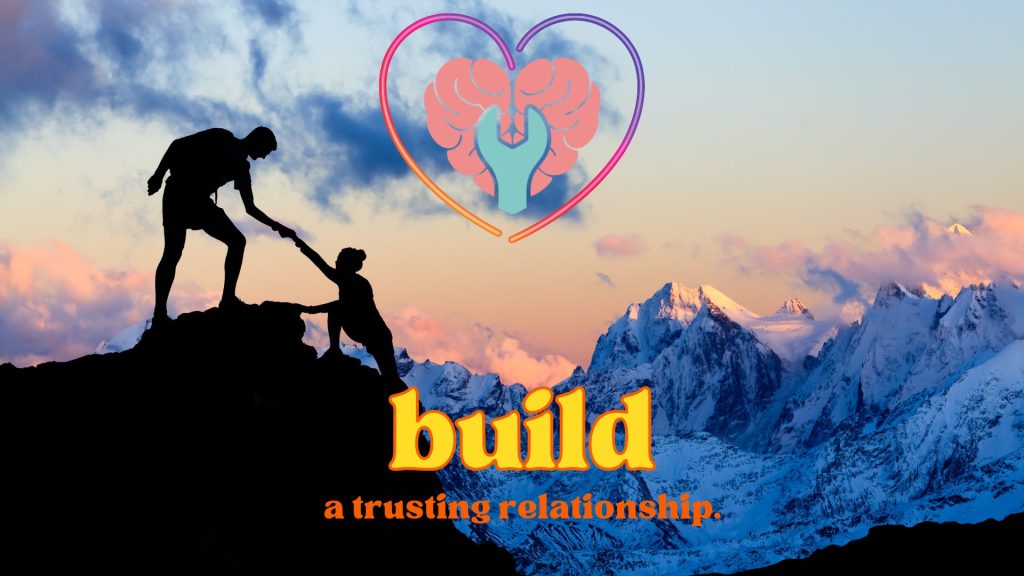Couple Counseling
Couple Counseling
Have you and your partner been experiencing concerns about the relationship lately?
Have you guys been experiencing constant arguments with one another? Couple Counseling might be something your relationship needs at this moment.
Having arguments that always end in fights, unhealthy coping mechanisms, and resentments can damage a relationship. There may be various factors that cause these tensions within a relationship. Oftentimes, we fail to communicate effectively when a conflict arises inflicting further damage on the relationship. Leaving the issues unaddressed or ignored often leads to more severe consequences such as break up or divorce. When couples often find themselves having the same fight repeatedly, it can be an indicator of the need for Couple Counseling.
Couple Counseling can be a medium that helps us learn and listen to our partner effectively. In return, we allow our partner to share their thoughts and perspectives as well. A therapist will facilitate the counseling session by serving as a neutral third party establishing open communication among partners. This will help the couple to talk through their relationship challenges and discover the root cause of the issue. The counseling session then continues by assisting the couple in working on their challenges. Couples will be equipping themselves with healthier communication skills and a better understanding of their relationship. Research studies have shown that couple counseling can improve relationships where couples can maintain healthy relationships after attending couple counseling.

Issues addressed in Couple Counseling
Diving deeper into couple counseling, when can you consider seeking couple counseling? It encompasses a range of issues encountered in relationships and below are several common signs that indicate it may be beneficial for you to seek assistance from a couple therapist.
1. Communication Issues & Frequent Arguments
If you find you and your partner are having frequent unresolved arguments, or it is increasingly difficult to communicate openly, and conversations often lead to misunderstandings, it may be the right time to seek a couple therapist.
2. Trust Issues
If your trust was broken by your partner due to dishonesty, or infidelity, or you find it hard to trust due to past traumas, couple sessions can be an effective aid to rebuild trust in the relationship.
3. Loss of Emotional Intimacy
If you feel that there is a lack of emotional intimacy and connection with your partner, couple therapy is a great option to rebuild emotional closeness.
4. Sexual Issues
If you are experiencing sexual dissatisfaction or other sexual issues in your relationship, couple therapy can be handy through the guidance and support that will be given.
5. Life Transitions or Parenting Conflicts
If you’re facing major life transitions, such as having children, facing mental health issues, career changes, or the loss of a family member, it can put relationships under strain. A couple therapists can assist you in navigating through these transitions, especially in developing effective co-parenting strategies.
6. Contemplating Divorce or Separation
If you’re contemplating separation or divorce, couple counseling can be a valuable final string of effort to explore on the conflict, with the hope of having a chance of a reunion with understanding and respect.
7. Relationship Growth
Even if your relationship is generally healthy, couple counseling can be beneficial for couples who want to further enhance their emotional intimacy and improve their overall relationship satisfaction.
What happens in Couple Counseling?
Couple Counseling session often begins with the therapist briefing the couple on the stages of the therapy and what to expect in future sessions together. The session then continues with exploring the history of the relationship's concern. Both partners will be further exploring the concern's cause within their relationship. It is very important for both partners to be open and honest to maximize the session's effectiveness. The session will advance with both partners setting goals for their relationship which ultimately fosters positive interactions and deepens their bond. With the help of the therapist, both partners will be able to find balance and goals that align with both partner's values. This will foster healing and cultivate positivity in the relationship.

What can we expect from Couple Counseling?
In addition, through couple counseling, both partners would be diving deeper into each other’s emotions, past traumas, patterns, reactions, and many more, which would further facilitate the therapy process. Oftentimes, homework would also be given by the therapist for the couple to work on for further progress, and once both the couple and therapist agree that their goals have been met, or made needed progress, the therapy session may come to a close, with occasional follow-ups or check-ins sessions to ensure improvement of the relationship is sustained.
While couple counseling can be highly beneficial for most couples, it may not be apt in all situations, especially when one partner is not fully committed, or one or both of them are having deeper issues that need individual therapy before committing to couple therapy. Sometimes, one or both partners may feel reluctant to share their very personal or childhood experiences in the presence of their partner due to shame. Hence, individual therapy would be more beneficial for them to explore and work on their personal issues before moving toward couple counseling.

Conclusion about Couple Counseling
In short, it is important to keep in mind that seeking couple counseling doesn’t mean that there is no hope in your relationship and it is never a sign of weakness, but a collaborative step toward improving your relationship with your partner. The process may be emotionally challenging, and it may also take time to see significant progress, but what matters is the decision of the couple to trust the process and make efforts for their relationship's betterment. The effectiveness of couple counseling depends on the willingness and commitment of both partners to make changes and work on their relationship.

